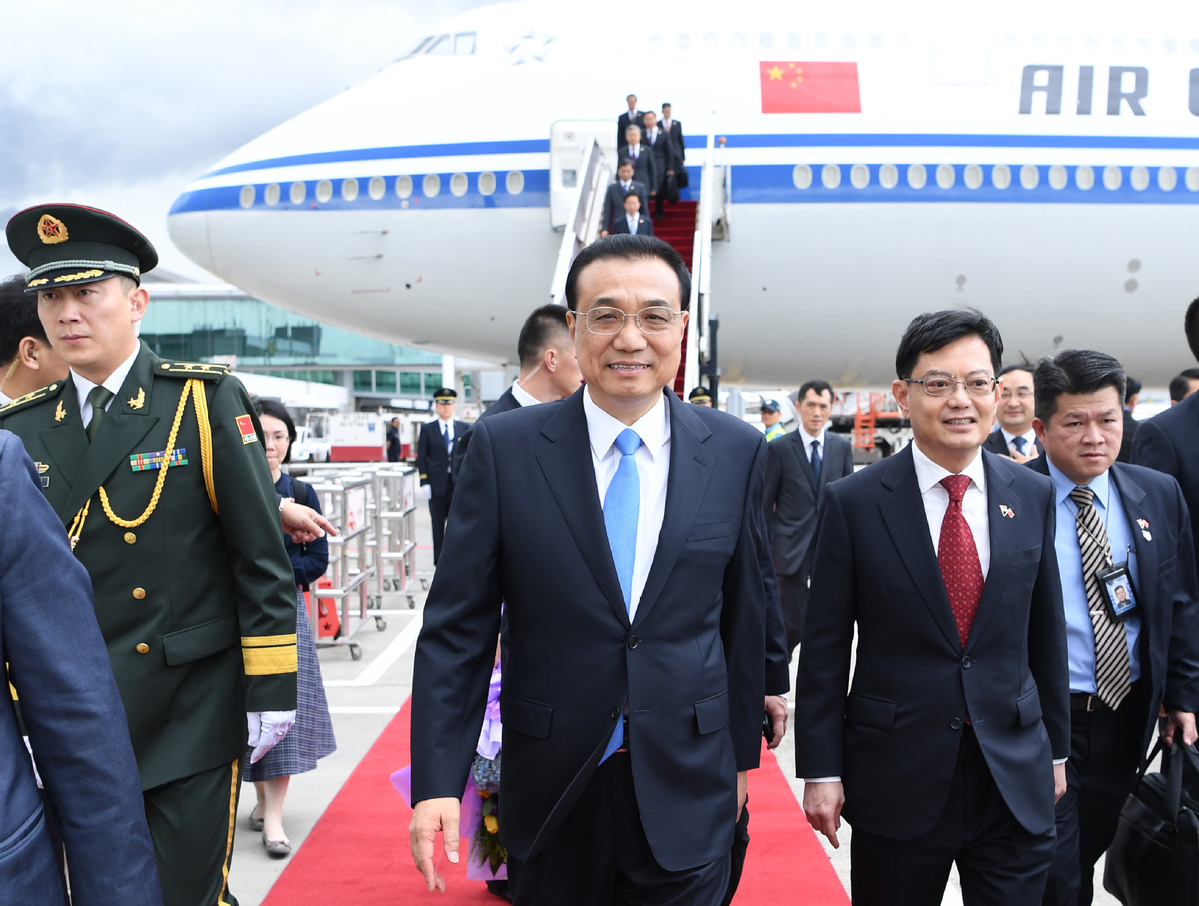Region rallies to support multilateralism, free trade: China Daily editorial
China Daily | Updated: 2018-11-13 21:08

In his speech addressing a business forum in Singapore on Tuesday, Premier Li Keqiang struck a resonant note on multilateralism, stressing that the world should not shun the principles of multilateralism and free trade, and neither does it need to reinvent the wheel.
Indeed, with some countries embracing unilateralism and protectionism, the world needs to shore up the spirit of multilateralism and win-win cooperation more than ever. In this regard, it is heartening to see Li and other regional leaders attending the series of meetings on East Asia cooperation in Singapore this week showing a shared commitment to regional cooperation and integration.
Like the other parts of the world, East Asia has been a beneficiary of globalization. The blueprint of the Association of Southeast Asian Nations for building the ASEAN Economic Community, with the support of its regional partners including China, Japan and the Republic of Korea, is itself a reflection of the region's desire to ride the wave of globalization and free trade.
ASEAN's community building, together with various other regional economic cooperation vehicles that have been established, have formed a launchpad for countries in the region to pursue a much more ambitious goal — the Regional Comprehensive Economic Partnership.
The negotiations on the RCEP have quickened since last year after the Donald Trump administration pulled the United States out of the Trans-Pacific Partnership. The RCEP is widely perceived as an antidote to the TPP, which was originally championed by the US and deliberately excluded the participation of big countries such as China and India. The RCEP would form the world's largest economic bloc, covering nearly half of the global economy, and thus would firmly anchor the multilateral trading system.
Significant progress is expected to be made in the complex negotiations this week, and the 16 countries, including China, Japan, India and the 10 members of ASEAN, are expected to finalize the deal next year. Such a desirable achievement would be instrumental in fending off the headwinds of trade protectionism and unilateralism, and would "deliver real benefits to people in the region", as Li said.
The efforts to realize the RCEP, along with concurrent efforts to facilitate talks on the Code of Conduct in the South China Sea, show the region is standing together to reject a beggar-thy-neighbor approach in favor of equitable and rule-based free trade and international cooperation that helps each country and its neighbors to prosper alike.
























